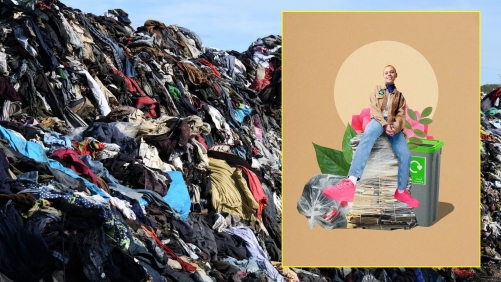Saudi Arabia Embraces Sustainability in Fashion Industry
TDT | Manama
Email : editor@newsofbahrain.com
Saudi Arabia is weaving sustainability into its fashion industry as part of its Vision 2030 initiative, which promotes environmental responsibility and a circular economy. By encouraging practices like reducing, reusing, recycling, and upcycling clothing, the Kingdom is making strides toward a more eco-conscious future.
The Environmental Cost of Fast Fashion
The global fashion industry produces over 80 billion garments annually, contributing to pollution, excessive resource use, and waste. According to UN figures, fast fashion accounts for 10% of greenhouse gas emissions, surpassing the combined emissions from international flights and shipping. Additionally, one garbage truck’s worth of textiles is sent to landfills every second, exacerbating environmental degradation.
Circular Fashion Initiatives in Saudi Arabia
In response, Saudi Arabia is investing in circular fashion models that prioritize reusing and repurposing materials. Riyadh’s GFX Fashion Swap promotes exchanging quality garments, extending their lifespan and reducing waste. The Fashion Commission, part of the Ministry of Culture, also supports local designers who prioritize sustainability.
Nasiba Hafiz, a Saudi designer, collaborates with Al-Oula Women’s Charitable Society to transform surplus fabrics into new garments. This initiative reduces waste while providing economic opportunities for women in south Jeddah.
Sustainable Innovations and Materials
The Sustainable Materials Research Center, in partnership with King Abdullah University of Science and Technology, is advancing the development of eco-friendly textiles for traditional garments like abayas and thobes. Designers like Chaldene incorporate natural materials, such as coconut-shell buttons, to reduce environmental impact.
Ghaydaa Majdaly, another innovative designer, uses 3D technology to transform recycled plastic bottles into fabrics. This approach ensures zero waste while simplifying the design process and improving product quality.
Consumer Behavior and the Path Forward
While designers lead the charge, consumer behavior plays a critical role in driving demand for sustainable fashion. Surveys reveal that many fast-fashion items are worn only a few times before being discarded. Advocates like Saudi model Reyouf Madkhali emphasize the importance of conscious consumerism and supporting local brands.
By addressing the environmental challenges of fast fashion and promoting innovative solutions, Saudi Arabia is forging a path that combines sustainability with cultural preservation. The Kingdom’s efforts are reshaping the fashion industry while aligning with its Vision 2030 goals.
Related Posts

